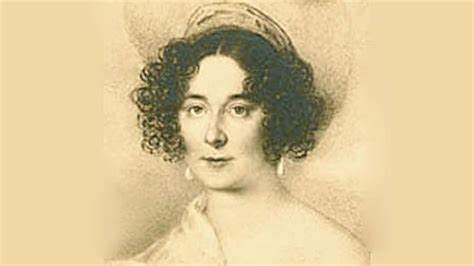1809 was a big year for songs for Beethoven. His song composition encompassed the six songs of Opus 75 (Day 219f), three songs without opus numbers 137, 138, and 139 (Day 227f), and Opus 82: Four Ariettas and a Duet, which begins today.
The Opus 82 Four Ariettas and a Duet are all based on Italian texts — the 1st from an unknown source but the other 4 by that prolific Italian libretto author, Pietro Metastasio. The songs were published with both Italian and German texts, and a mix of Italian and German titles.
Beethoven possibly got interested in setting Italian songs due to his crush on the 17-year-old Therese Malfatti, who was of Italian ancestry. Therese was a “beautiful, lively and intellectual woman, a very good pianoforte player,” and the niece of Beethoven’s doctor friend.

The first song of Beethoven’s Opus 82 is listed in Paul Reid’s The Beethoven Song Companion by its first line “Dimmi, ben mio, che m’ami” (“Tell me, darling, that you love me”), but it was published until the German title “Hoffnung” (“Hope”).
The source of the text of the 1st Opus 82 song is unknown. It translates as:
Tell me, darling, that you love me,
Tell me you are mine,
And I shall not envy the gods
Their divinity.
With a single glance,
Sweetheart, with one smile
You open for me the paradise
Of my contentment.
#Beethoven250 Day 233
“Hoffnung” / “Dimmi, ben mio, che m’ami” (Opus 82, No. 1), 1809
Floridian soprano Ginamarie Malone has lots of fun with the song.
Beethoven’s setting of “Dimmi, ben mio, che m’ami” has an operatic feel, partially due to the Italian text, but also the stretching out of syllables with multiple notes (melisma). In the repeated text, Beethoven gives the singer opportunities for her own embellishment.